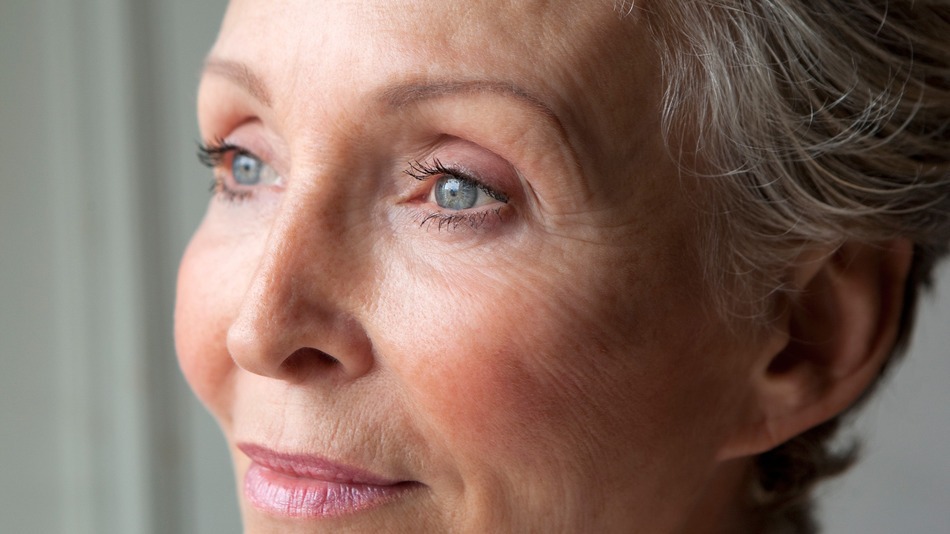Elderly women are more likely than elderly men to develop Alzheimer's disease, even when they are exposed to some of the same risk factors, two new studies find.
Senior women who have mild cognitive problems, such as memory impairment and difficulties with language or thinking skills, decline in cognitive ability twice as fast as men who also have mild cognitive impairment, according to one study.
A separate study found that women declined more dramatically than men in measures of cognition, function and brain size after they underwent surgery and general anesthesia. Both studies, which have yet to be published in scientific journals, were presented at the 2015 Alzheimer's Association International Conference, held July 18 to 23 in Washington, D.C.
People with mild cognitive problems can still function in everyday life, but their declines, though slight, can be noticeable in typical conversations, the researchers said. Moreover, people with mild cognitive impairments have an increased risk of developing Alzheimer's disease people with mild cognitive impairments have an increased risk of developing Alzheimer's disease or another form of dementia, they added.
In the first study, scientists studied a group of 400 people with mild cognitive impairment, and examined how their cognitive abilities changed over an eight-year period. To measure cognitive ability, each participant underwent a cognitive exam with 11 parts that were scored on a scale from 0 to 70.
The women did not fare well overall, the researchers found. Men with mild cognitive problems declined an average of 1.05 points per year, whereas women declined an average of 2.3 points per year, they said.
Both men and women declined more quickly if they had a specific gene variant, called ApoE4, that is associated with an increased Alzheimer's risk. But after the researchers factored in ApoE4 status, as well as age, education, baseline cognition score and follow-up time, women were still more likely to cognitively decline at a faster rate than men, the scientists said.
"Our findings suggest that men and women at risk for Alzheimer's may be having two very different experiences," men and women at risk for Alzheimer's may be having two very different experiences," study researcher Katherine Lin, a clinical research scholar of Alzheimer's disease at Duke University Medical Center in Durham, North Carolina, said in a statement. "These results point to the possibility of as-yet-undiscovered gender-specific genetic or environmental risk factors that influence the speed of decline. Uncovering those factors should be a high priority for future research."
Anesthesia and surgery
Elderly women also have a greater risk of developing Alzheimer's than men if they've had surgery and general anesthesia, the other study found.
Most people who receive general anesthesia and undergo surgery show no lasting cognitive impairments afterward, the researchers said. However, previous studies have shown that elderly people are at increased risk for long-term cognitive and functional problems after having surgery and general anesthesia, said lead researcher Dr. Katie Schenning, an assistant professor of anesthesiology and perioperative medicine at Oregon Health & Science University in Portland.
"When I started learning more about the sex differences that exist in Alzheimer's in general, it made me curious as to whether there might be a sex difference in the effects of anesthesia and surgery on cognitive decline," Schenning told Live Science.
To investigate, she and her colleagues looked at volunteers in two research groups — the Oregon Brain Aging Study and the Intelligent Systems for Assessing Aging Changes. In total, the study included 527 participants, including 182 individuals who underwent 331 procedures with general anesthesia.
Surgery with general anesthesia was associated with long-term cognitive declines in both elderly men and elderly women Surgery with general anesthesia was associated with long-term cognitive declines in both elderly men and elderly women, the researchers found.
However, elderly women who experienced surgery and general anesthesia declined more quickly than elderly men on measures of cognition, the ability to function in everyday life and brain volume (meaning women tended to develop larger ventricles in their brain, which is an indication of brain atrophy), Schenning said.
Women who received multiple surgeries with general anesthesia showed even greater declines, Schenning added. What's more, people showed faster declines in these measures of brain function if they received surgery with general anesthesia and had at least one ApoE4 gene variant, she said.
Nonetheless, the evidence is too preliminary to advise the elderly against getting general anesthesia and surgery the evidence is too preliminary to advise the elderly against getting general anesthesia and surgery, she said.
"We don't know if this is anesthesia or surgery, or a combination thereof," Schenning said. Instead, she advised elderly people at risk for Alzheimer's to minimize their elective or unnecessary surgeries in which general anesthesia is needed.
Studies such as these may help researchers understand why nearly two-thirds of American seniors with Alzheimer's disease are women, said Maria Carrillo, chief scientific officer of the Alzheimer's Association.
"Women are disproportionately affected by Alzheimer's, and there is an urgent need to understand if differences in brain structure, disease progression and biological characteristics contribute to higher prevalence and rates of cognitive decline," Carrillo said in a statement. "To intervene and help reduce the risk of Alzheimer's, it's critical to understand the reasons for these differences."
Fuente: mashable.com
